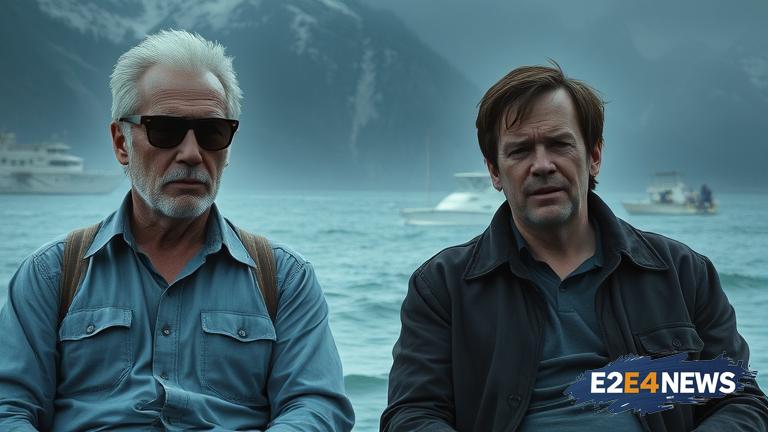Mystic River, directed by Clint Eastwood, is a thought-provoking drama that delves into the intricate web of relationships and the darker aspects of human nature. The film, released in 2003, tells the story of three childhood friends, Jimmy, Sean, and Dave, who are reunited after a tragic event. Kevin Bacon, who played the role of Sean Devine, a detective investigating the murder of Jimmy’s daughter, recalls the intense preparation and research that went into bringing the character to life. Eastwood, who not only directed but also scored the film, notes that the story’s exploration of trauma, grief, and redemption resonated deeply with audiences. The film’s narrative is layered with complex themes, including the long-lasting effects of childhood trauma, the fragility of human relationships, and the search for justice and closure. Through the characters’ journeys, the film sheds light on the darker aspects of human nature, revealing the capacity for both good and evil that exists within individuals. The cast, which includes Sean Penn, Tim Robbins, and Laura Linney, delivers powerful performances that bring depth and nuance to the story. Eastwood’s direction is characterized by his signature minimalist approach, allowing the actors to take center stage and drive the narrative forward. The film’s cinematography, handled by Tom Stern, captures the bleak and atmospheric landscape of the story’s setting, adding to the overall sense of tension and foreboding. Mystic River received widespread critical acclaim, with many praising the film’s thought-provoking themes, strong performances, and Eastwood’s masterful direction. The film’s success can be attributed to the collaborative effort of the cast and crew, who worked together to bring this haunting and emotionally charged story to life. In retrospect, Bacon notes that the film’s exploration of trauma and its aftermath remains a timely and important topic, one that continues to resonate with audiences today. Eastwood’s body of work, including Mystic River, has cemented his status as a master filmmaker, known for his ability to craft compelling stories that explore the human condition. The film’s impact extends beyond the screen, with many citing it as an example of the power of cinema to spark important conversations and raise awareness about social issues. As a cultural touchstone, Mystic River continues to be studied and appreciated by film enthusiasts and scholars alike. The film’s influence can be seen in many other works of cinema, with its themes and motifs being echoed in a wide range of genres and styles. In conclusion, Mystic River is a masterpiece of contemporary cinema, a film that lingers in the mind long after the credits roll. Its exploration of the human condition, coupled with outstanding performances and direction, makes it a must-see for anyone interested in thought-provoking drama. With its release, the film sparked a national conversation about trauma, grief, and redemption, and its impact continues to be felt today. The film’s legacy serves as a testament to the enduring power of cinema to inspire, educate, and challenge audiences. As a work of art, Mystic River remains a powerful and haunting drama that continues to captivate audiences with its thought-provoking themes and outstanding performances. The film’s influence extends beyond the world of cinema, with its themes and motifs being referenced in literature, music, and other forms of artistic expression. In the years since its release, Mystic River has become a classic of contemporary cinema, a film that continues to be celebrated for its masterful storytelling, outstanding performances, and thought-provoking themes. The film’s exploration of the human condition, coupled with its technical excellence, makes it a landmark work of cinema that will continue to be studied and appreciated for generations to come.
